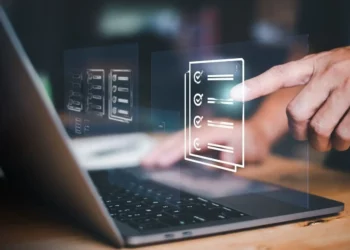<![CDATA[
“Most people write off business lunches and work travel on their company expenses, but a new study says they also try invoicing their companies for late-night dips into the mini bar, car washes and — yes — lunches that take place in GOLF clubs.
The study released by AppZen, says 46% of companies reimburse for gifts for clients and 39% do so for golf. Only 16% of businesses reimburse employees for room service and 15% for drinks from the hotel mini bar. Employees are, these results suggest, trying to expense some personal items.” – Source
Fortunately (or unfortunately), this study is focussed on US corporates and is not representing Indian expense reimbursement data.
This blog is final in the series of 3 blogs and we see HOW Mr KABRA WILL BE SAVING INR 5.48 CR IN THE YEAR 2021.
[If you haven’t ready the first 2 blogs, read now.
There are 3 major types of expense fraud:
- Duplicate Bills
- Incorrect amounts [not matching the bills]
- Restricted Items [like alcohol]
I had shown the report to Mr Kabra and mentioned, “We believe Indian employees are not reimbursing such restricted items”
“Just because there are no studies available on Indian data, it doesn’t mean people are not submitting their bills for late night parties, golf club lunches and what not. There were a total of 1.32Cr worth of expenses accounting for 3.5% of total, which included items we as a company do not allow as business expense”, said Mr Kabra in an amused tone.
“Still they were easily processed and buried under the 1000s of receipts”, he continued.
Mr Kabra seemed to have accepted this as a sunk cost as trying to solve this could lead to more cost in manpower and would also mean confronting people in person [which can have more negative consequences than positive]
While Mr Kabra had given up on solving this, Happay’s problem solving core team brainstormed and it definitely looked like a challenging task.
Indian receipts are not standardised and they don’t follow any specific format.
Most of the global OCR technologies find it hard to interpret Indian receipts and hence they fail at identifying the expense line items in the receipts.
Happay’s strong engineering and data team took the challenge built a Machine Learning based solution to train our in-house proprietary OCR to read Indian receipts from across the country. Since Happay processes millions of receipts in a month, getting enough anonymised data for training was not a challenge.
The OCR tech is now able to single out each expense line item and cross reference it through a list of restricted items as defined by a company.
e.g: Company ABC doesn’t allow ‘Wine’ to be expensed.
Happay’s OCR tech will scan through the receipts submitted by the employees and identify any expense matching this restricted item list.
Here’s how it works.
Description: Happay’s SmartAudit checks receipts for restricted items and raises a policy violation flag.
This was only possible because Happay built it’s OCR tech inhouse and with the Indian context. Global solutions work with US context and hence they fail on Indian receipts.
This was more than expected for Mr Kabra, and he mentioned that this has made the solution irreplaceable for them.






